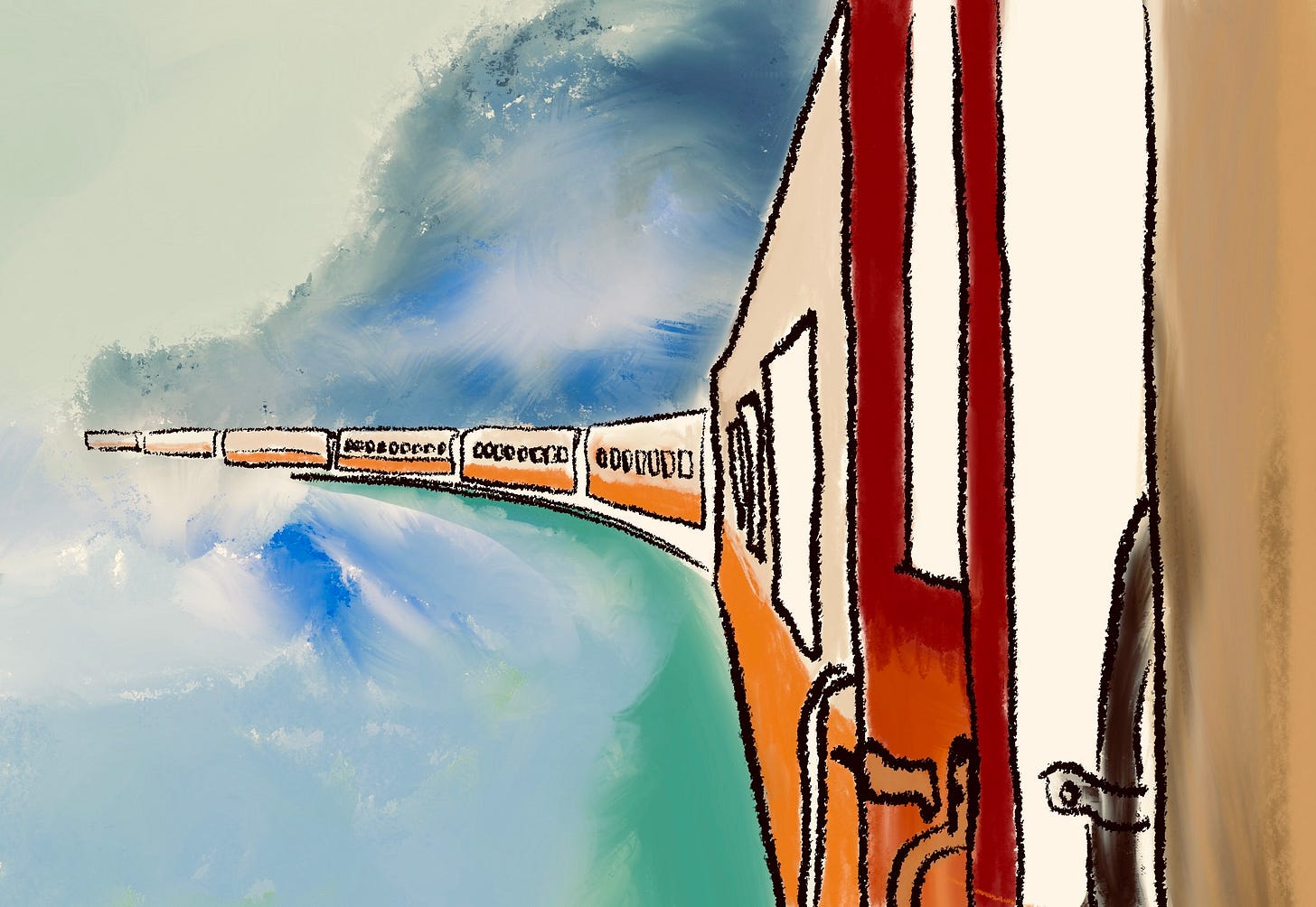“We don't set out to save the world; we set out to wonder how other people are doing and to reflect on how our actions affect other people's hearts.” ~Pema Chödrön
Week Two | For the Joy & the Sorrow | Something I've Noticed
Back in 2019, toward the end of the first Trump presidency, Naomi Shihab Nye selected a poem for the New York Times Magazine that she called “utterly necessary for our time.” That poem (I provide a gift link in the exercise section of this post), reminds me of the Ross Gay essay we’ll be looking at this week.
I’ll get to the essay shortly.
First, though, a word about your writing last week, the “:What you don’t know …” essayettes. Friends, these have been so brilliant. Truly delightful writing—inventive, original, engaging, evocative, surprising. I have been enjoying them immensely! I am also buoyed by the daily delights you’re sharing in the Writing in the Dark chat—if you’re not over there and want to be, you can find out how to join here. You might find it an uplifting antidote to the moment we’re in. Otherwise, you can also follow along with this intensive weekly, checking in on Wednesdays for the writing exercise. Today’s feels like some kind of universal key to all locks, and I am so excited to see where you take it.
Meanwhile, speaking of the moment we’re in. The Pema Chödrön quote serving as the headline for this post feels so apt right now. Because in the throes of these terrible fires, this apocalyptic disaster over which none of us have any direct control, the weight of helplessness can feel crushing. But we’re not as helpless as it sometimes feels in these moments.
While we can’t put the fires out—not even the crews fighting the fires have been able to do that yet—we can contribute to organizations and individuals, spread the word for those raising funds, and we can keep checking on people, whether that be family and friends in or near Los Angeles, or others in our lives who are carrying already heavy burdens now amplified by the weight of an unspeakable natural disaster with its constant heartbreaking images (a lot of us were already pretty fragile before the fires started).
In other words, we can pay attention to the people around us and do what we can, here and there, to ease the burdens. Sometimes, the attention itself is enough to make a difference—just the act of the noticing. We know this from quantum physics, which gives us a principle called “the observer effect”:
The act of looking at something changes it—an effect that holds true for people, animals, even atoms.1
So, regardless of whatever else we are or are not able to do in a given situation, we can almost always notice the world around us, the people, animals, plants, etc. We can bring our attention to bear in whatever ways feel best or most useful or simply most human and healing.
It’s a little like prayer.
In fact, sometimes, when I’m noticing, I even put my hands over my heart, or, more accurately, my hands fly up to my heart of their own accord, in a gesture of reverence or protection or hope or gratitude or whatever the case may be.
And now for the essayette I selected for us to close read and write in response to this week. This essayette takes us along with Gay as he travels from Syracuse to




